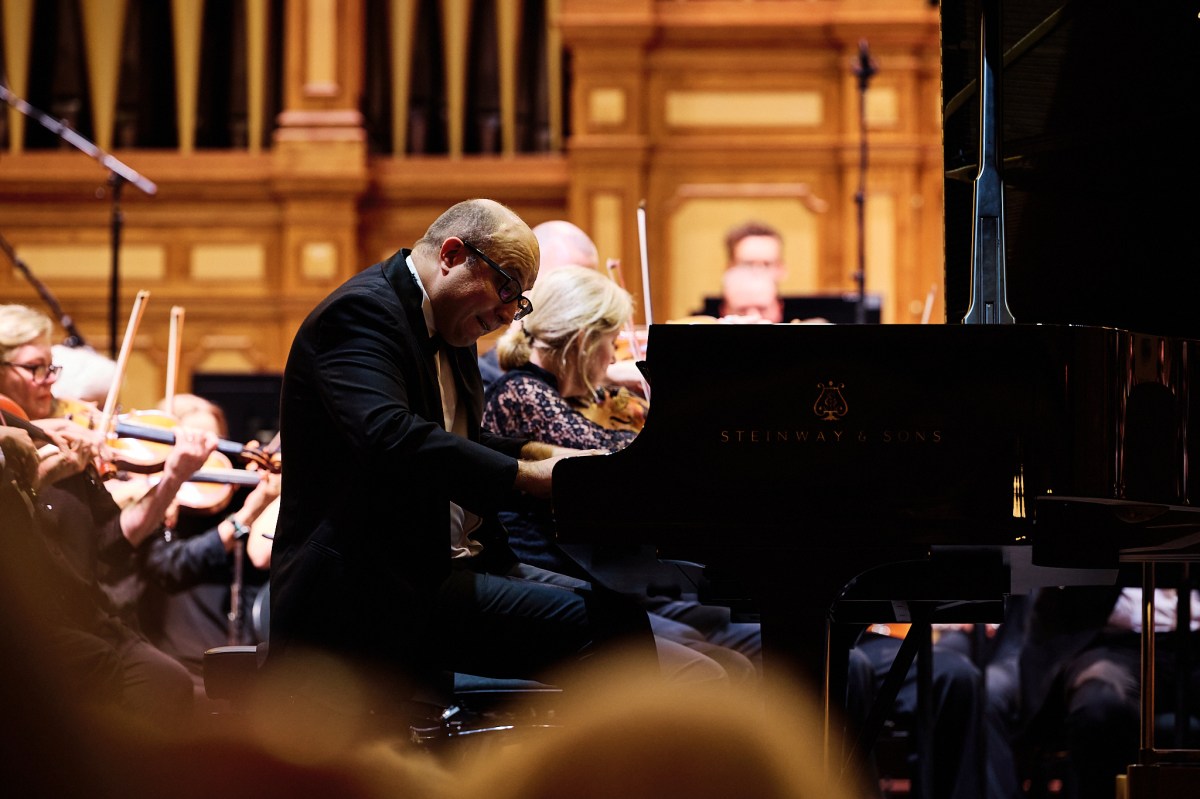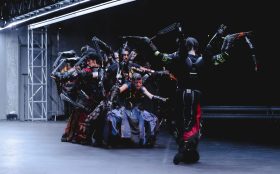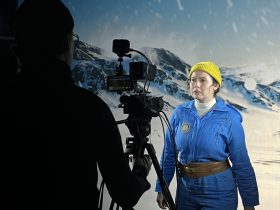There are occasional moments in the concert hall when you can’t help but be awed by the brilliance of both composer and performer. It was such a moment for Adelaide audiences when celebrated Ukranian-Australian pianist Alexander Gavrylyuk gave an impressive account of the truly exhilarating Piano Concerto no. 1 by Sergei Prokofiev.
Written in 1911, when Prokofiev was a mere 20 years old, this is a huge piece for both soloist and orchestra. The piano solo is audacious in the extreme with powerful cadenzas and great dashing legatos, making huge demands on the pianist for speed and precision. Only the most agile and accomplished pianist can really play this with confidence and Gavrylyuk excels on both counts.
It’s no coincidence that Prokofiev was himself a brilliant pianist, as well as composer. This is a modernistic piece that was written by someone who understands the heart and soul of the instrument and the capacity of the player.
The First was dispensed with debonair aplomb by Gavrylyuk, who has performed this work regularly in concert halls around the world. His glistening brow at the end was the only indication of the intense physicality of the work. And the Adelaide Symphony Orchestra gave a strong performance under the assured baton of visiting conductor Teresa Riveiro Böhm.
The great swirling climax of the third allegro scherzando movement was just superb. The audience clapped and cheered fulsomely, the players of the ASO applauded, and Gavrylyuk spontaneously hugged Riveiro Böhm in a celebratory embrace. And then he rewarded the audience with a delightful solo encore before taking his leave.
The wonderful First was actually the second piece on the ASO’s aptly named Exhilaration program. Ahead of this we heard the charming Mother Goose Suite by the French impressionist composer Maurice Ravel. This is wonderfully lyrical ballet music and is highly evocative of the Charles Perrault fairy tales on which it is based. The woodland creatures, the birds, and the fairies all come to life here in delicate colours with lovely work from the harp, woodwind, and percussion. There is even a tribute to another great French composer of the same period, Erik Satie, best known for the Gymnopedies.
Read: Theatre review: Triplets
After interval there was a lesser-known piece, an overture by Polish composer Grazyna Bacewicz. At just six minutes, this dramatic piece has much to say about the realities of life during the Second World War.
And then it was into another much-loved balletic piece, The Firebird Suite by Igor Stravinsky. Again, the confidence of a young composer, in this case a youthful 28, was on display. Stravinsky repeatedly challenged musical conventions and in doing so composed beautiful scores that were both original and timeless.
This was indeed an exhilarating program and it was a delight to see the young Austrian-Spanish conductor Teresa Riveiro Böhm on her first engagement with the ASO. She has a vivid and open physical style and clearly enjoyed keen rapport with the soloist and players.
ASO Symphony Series 7, Exhilaration was performed on 13-14 October at Adelaide Town Hall.





